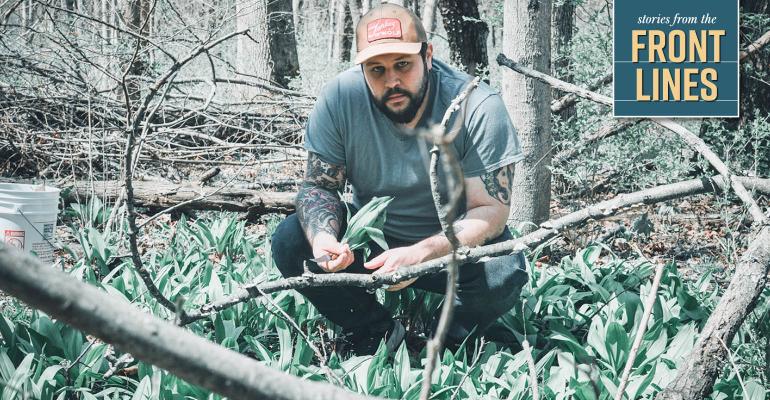As part of our Stories from the Front Lines series, Restaurant Hospitality reached out to restaurateurs to share their experiences during the coronavirus crisis. Alan Sternberg, chef and partner, Common House Supper Club in Indianapolis. Here is his story.
I’ve spent half of my life in restaurants. It’s practically all I know. In college, I’d skip classes to get to the restaurant earlier so I could mise my station. I enjoy a hard day’s work and regularly still work 16-hour days. My wife and I have had a few different pop-ups so we can serve people on our days off. Cooking for other people has consumed my sense of identity for as long as I can remember.
In March, we found out that we could no longer serve people in our dining room because of the COVID-19 outbreak. We hastily made the shift to carry-out like many of our peers but for some reason it felt hollow. The excitement, buzz, and pleasure of a dining room full of happy guests was missing. The family that had spent countless hours learning and fine tuning our dance was missing pieces. We were a shell of who we were and how we saw ourselves.
The first week was busy, as support for small restaurants was high and people were enthusiastic about helping save their local haunts. As the week progressed, that enthusiasm — and our morale — dampened. At the beginning of week two, the risk began to overtake our resolve and we caved. It just wasn’t worth being only on life support and putting our guests, our families and ourselves at risk.

Suddenly, the comforting embrace of a restaurant was gone. I went home to my family and told them we were done. My wife Audra, who was furloughed a week prior, asked ‘What do we do?’ A simple ‘I don’t know’ was all I could muster. The next day I spent most of the day in my kitchen. I, like so many of my peers, turned to my only coping mechanism: cooking.
I started a daily sourdough project, fermented and pickled vegetables, started foraging and worked on pasta videos for a YouTube page Audra and I started. I started pulling books from my cookbook library that I’d accumulated faster than I could consume. I reached out to old cooks and FOH staff that I hadn’t talked for a while. I networked and advocated for my crippled and beloved industry. All I could do to stay sane was be around the thing I missed so dearly.
Even in the uncertainty and bleakness of our situation, a silver lining appeared as I was able to spend a lot more time with my kids. I was able to cook with them, walk through the woods and pick ramps, and share my love of food with them in a way we just never had made time for previously.
I don’t know what’s next for restaurants. I think dire changes to the way our society functions will occur. How that change pans out for our industry is yet to be seen, but if we can change to allow ourselves to take a break from time to time and appreciate the world around us and the people we work with a little more than maybe this whole mess will be worth something.





